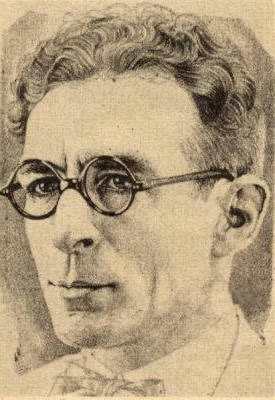4.1.1.5 The first stage of the poetic work of Agustín Acosta (1886 – 1979)

During this first period, which spanned from the beginning of the Republic until 1923, Agustín Acosta wrote the poetry collections “Ala” (1915) and “Hermanita” (1923). In the years between 1913 and 1915, he also obtained natural flowers at the poetic floral games in Havana and Santiago de Cuba. His first verses were published in “El Fígaro.”
Although he participated to some extent in the renewal movement sponsored by Boti and Poveda, this aspiration did not constitute a guiding principle for his poetry but rather a tangential aspiration that he shared without the necessary aesthetic clarity. His marked eclecticism and the variety of emotional states that give rise to his verses make a thorough study of his work difficult; however, his readings of Darío within the modernist legacy and a return to epigonal Romanticism that at times distance him from the renewal drive of those years are evident.
His collection of poems, “Ala,” is composed of seven sections, some of them containing just one poem, subtitled: “The Roads,” “Alba de Epinicio,” “Martí,” “Floral Poem,” “Poem of Love and Faith,” and “The Bitter Minute.” Aside from the rhetoricalism that prevails in some verses and a sentimentality that is outdated with its contemporaneity, some verses reach a tone of greater aesthetic height in their simplicity and demonstrate a mastery of sonnet structures, some with a delicate lyricism, such as “Torno a la luz” (Around the Light).
“I return to the secret light of your sacred eyes,
of your good look, of your tears from yesterday…
You arise, among my old forgotten loves,
only for your ineffable tenderness as a woman.
How my heart has withered that one day
gave herself fragrant and pure to your impossible love…!
If you saw it, your soul would recognize it.
just because you live in it in pain.
When did I stop seeing you? When, my love, when?
Don’t you hear in these verses something that is crying?
-A trembling that sobs, a pain without anger-.
Will you still see me in your old memory?
I am the one who one day saw glory in your eyes
And he has never been able to forget that day…!”
The patriotic theme is authentic in his verse—in other ways, it displays an ethical foundation that is more of a convention than a legitimate internalization—although he employs a grandiloquent, idealizing tone when referring to the figure of Martí and patriotic symbols such as the flag. His ideological position would evolve toward an anti-imperialism, which is not entirely conscious but is a logical consequence of his sense of patriotism.
The poetry collection “Hermanita” is more thematically cohesive, revolving around love from a romantic perspective, with a lyrical tone that returns to the past and constructs images from the evocation of the beloved. Agustín Acosta’s voice had some significance within the lyrical emptiness of the period and, although he did not fully express it in his poetry, he did understand the urgent need for renewal.








